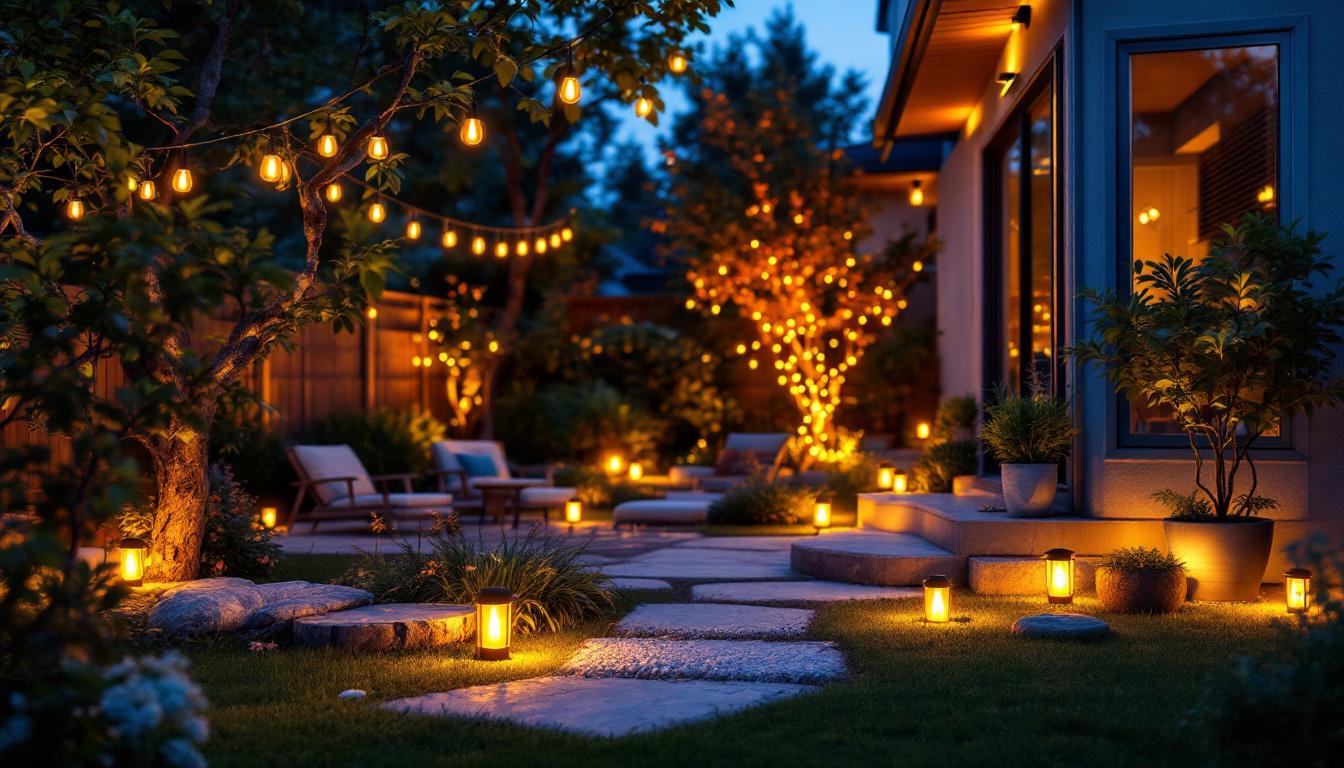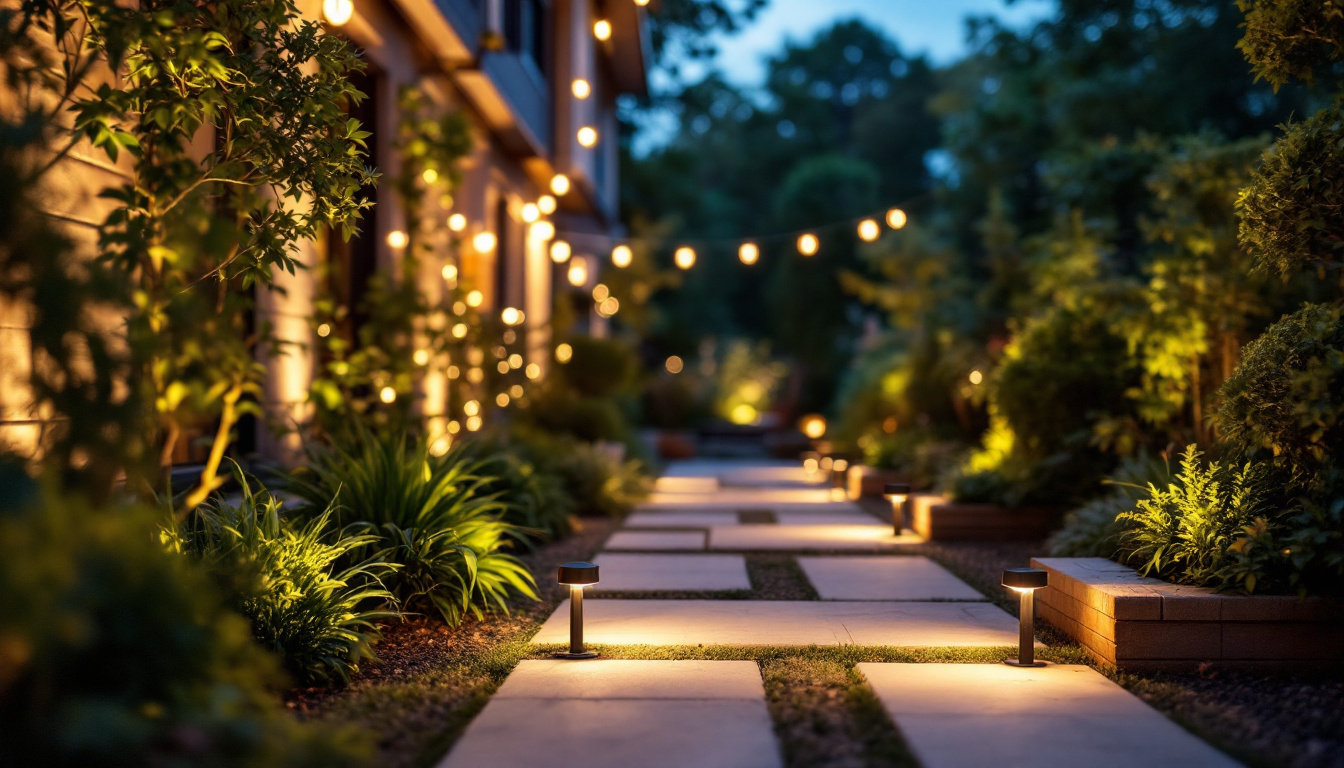
As the demand for sustainable energy solutions continues to rise, solar light bulbs are becoming an increasingly popular choice for outdoor lighting. For lighting contractors, understanding the intricacies of these products is essential for providing clients with effective and reliable solutions. This article aims to demystify solar light bulbs, covering their functionality, benefits, installation considerations, and maintenance requirements.
Solar light bulbs are designed to harness sunlight during the day and convert it into energy for illumination at night. This self-sustaining mechanism not only reduces electricity costs but also minimizes environmental impact. For contractors, it is crucial to grasp how these bulbs operate to effectively communicate their advantages to clients. As the demand for sustainable energy solutions continues to grow, solar light bulbs represent a practical choice for eco-conscious homeowners and businesses alike, providing a blend of functionality and environmental responsibility.
At the core of solar light bulbs is a solar panel, which captures sunlight and converts it into electrical energy. This energy is stored in rechargeable batteries, allowing the bulb to function even when the sun goes down. Most solar light bulbs come equipped with light-emitting diodes (LEDs), which are energy-efficient and have a longer lifespan compared to traditional incandescent bulbs. The efficiency of these LEDs not only contributes to longer operational times but also ensures that the bulbs emit a brighter light, enhancing safety and visibility in outdoor spaces.
When the sun sets, a built-in light sensor activates the bulb, drawing power from the stored energy to illuminate the area. This automatic operation is a significant selling point for contractors, as it requires minimal user intervention once installed. Additionally, many modern solar light bulbs feature adjustable brightness settings and motion sensors, which can further enhance energy savings by only activating when movement is detected. This adaptability makes them an appealing option for a variety of settings, from residential gardens to commercial properties.
There are various types of solar light bulbs available on the market, each designed for specific applications. Understanding these types can help contractors recommend the best solution for their clients’ needs. The versatility of solar light bulbs allows for creative and functional outdoor lighting solutions that can complement any landscape design.
Solar light bulbs offer numerous advantages that can be appealing to both contractors and their clients. Understanding these benefits can help in making a compelling case for their use.
One of the most significant benefits of solar light bulbs is their cost-effectiveness. Since they rely on solar energy, there are no electricity bills associated with their operation. This can lead to substantial savings over time, making them an attractive option for budget-conscious clients.
Additionally, many solar light bulbs are designed for easy installation, which can reduce labor costs for contractors. With no need for complex wiring or electrical work, the installation process can be completed quickly and efficiently.
As the world shifts towards more sustainable practices, the environmental benefits of solar light bulbs cannot be overstated. By utilizing renewable energy, these products help reduce carbon footprints and promote eco-friendly living. For contractors, this aligns with the growing demand for green building solutions.
Moreover, solar light bulbs often come with materials that are recyclable or made from sustainable sources, further enhancing their appeal to environmentally conscious clients.
While solar light bulbs offer many advantages, proper installation is crucial for optimal performance. Lighting contractors must consider several factors to ensure that the bulbs function effectively and meet client expectations.
The location of solar light bulbs is a critical factor in their performance. It is essential to install them in areas that receive adequate sunlight throughout the day. Shaded locations, such as under trees or near buildings, can significantly reduce the amount of energy collected, leading to poor performance at night.
Contractors should assess the site before installation, considering factors such as surrounding structures, trees, and landscape features that may obstruct sunlight. Proper placement can maximize energy absorption and ensure reliable nighttime illumination.
The battery is a vital component of solar light bulbs, as it stores the energy collected during the day. Contractors should pay attention to the battery capacity and quality when selecting products. Higher-capacity batteries can store more energy, allowing the lights to operate for extended periods, even on cloudy days.
It is also important to consider the battery’s lifespan and replacement requirements. Some solar light bulbs come with built-in batteries, while others allow for easy replacement, which can be a significant factor for long-term maintenance.
While solar light bulbs are generally low-maintenance, some upkeep is necessary to ensure they continue to operate effectively. Educating clients about maintenance can enhance their satisfaction and prolong the lifespan of the lighting system.
Solar panels require regular cleaning to remove dirt, dust, and debris that can obstruct sunlight absorption. Contractors should recommend that clients clean the panels periodically, especially in areas with heavy pollen or dust accumulation.
A simple wipe with a damp cloth or a gentle rinse with water can help maintain optimal performance. Educating clients about the importance of this maintenance task can lead to better overall satisfaction with their solar lighting solutions.
As previously mentioned, the battery is a critical component of solar light bulbs. Over time, batteries may degrade and lose their ability to hold a charge. Contractors should inform clients about the expected lifespan of the batteries and the signs that indicate a need for replacement.
Regularly checking the battery’s condition can prevent unexpected failures. Providing clients with guidance on how to replace batteries can also enhance their experience and reduce the likelihood of service calls.
Despite their growing popularity, there are several myths surrounding solar light bulbs that contractors should be prepared to address. Dispelling these misconceptions can help clients make informed decisions.
One common myth is that solar light bulbs do not provide sufficient brightness for outdoor spaces. However, advancements in LED technology have significantly improved the lumen output of solar lights. Many modern solar light bulbs can produce ample brightness, making them suitable for various applications, including security lighting.
Contractors can showcase the available options and demonstrate the effectiveness of solar light bulbs to alleviate client concerns about brightness.
Another misconception is that solar light bulbs are only effective in sunny regions. While it is true that sunlight exposure is essential for optimal performance, many solar lights are designed to function even in partially cloudy conditions. Some models come equipped with larger batteries that can store enough energy to power the lights during overcast days.
Educating clients about the capabilities of modern solar technology can help them understand that solar light bulbs can be a viable option regardless of geographic location.
The solar lighting industry is continually evolving, with new technologies and innovations emerging regularly. Staying informed about these trends can help lighting contractors remain competitive and offer cutting-edge solutions to their clients.
One of the most exciting developments in solar lighting is the integration of smart technology. Smart solar lights can be controlled remotely via smartphone apps, allowing users to adjust settings, schedules, and brightness levels with ease. This added convenience can be a significant selling point for tech-savvy clients.
Furthermore, smart solar lights can incorporate motion sensors, enhancing security features by illuminating pathways when movement is detected. Contractors should consider offering these advanced options to meet the growing demand for smart home technology.
Advancements in battery technology are also paving the way for more efficient solar lighting solutions. Newer battery types, such as lithium-ion, offer higher energy density and longer lifespans compared to traditional lead-acid batteries. This means that solar light bulbs can operate for extended periods without requiring frequent replacements.
Contractors should keep an eye on these developments, as they can significantly impact the performance and reliability of solar lighting systems.
Solar light bulbs present a compelling option for outdoor lighting, combining cost-effectiveness, environmental benefits, and ease of installation. For lighting contractors, understanding the nuances of these products is essential for providing clients with informed recommendations and solutions.
By demystifying solar light bulbs, contractors can effectively address client concerns, dispel common myths, and highlight the advantages of solar technology. As the industry continues to evolve, staying abreast of trends and innovations will ensure that contractors remain at the forefront of sustainable lighting solutions.
In a world increasingly focused on sustainability, solar light bulbs are not just a trend; they are a step towards a brighter, greener future.
Ready to elevate your outdoor lighting projects with the most cost-effective, environmentally friendly, and easy-to-install solar light bulbs? Look no further than LumenWholesale, where we provide lighting contractors like you with top-quality, spec-grade lighting products at unbeatable wholesale prices. Say goodbye to local distributor markups and hello to superior lighting products that meet the highest industry standards. With our hassle-free bulk buying and free shipping, you’ll get premium lighting at the best value — without hidden fees or compromises. Take the next step towards a brighter, greener future and Wholesale Lighting at the Best Value today.

Discover the ultimate guide to light bulb bases with insights from expert lighting contractors.

Discover how motion lights for outside are revolutionizing modern lighting solutions by enhancing security, energy efficiency, and aesthetic appeal.

Discover how Universal Lighting Tech can transform your business operations.

Discover the importance of track light kits for lighting contractors, enhancing efficiency, flexibility, and design.